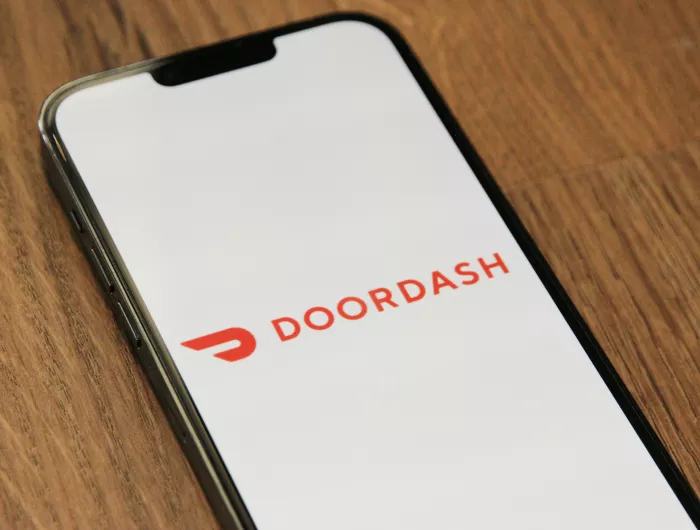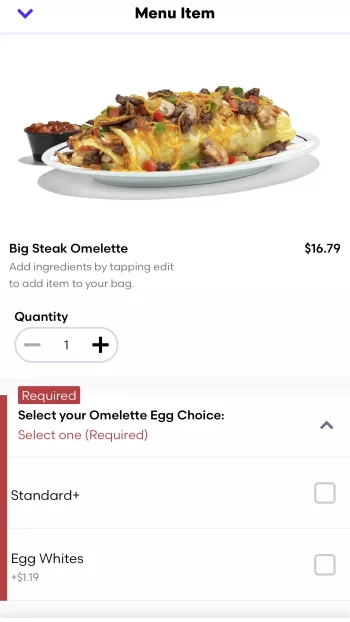Groups ask FDA to declare that restaurants must post calories on DoorDash, Uber Eats, and other ordering apps

Marques Thomas - unsplash.com.
Flawed guidance gives industry impression compliance is voluntary
Congress passed legislation in 2010 intended to give consumers access to calories and other nutritional information when they order food from chain restaurants with more than 20 outlets nationwide. Research shows that over half of consumers use this calorie information to help them decide what to order, and menu labeling leads people to select foods with significantly fewer calories.
The Food and Drug Administration’s regulations implementing the law state that calories are mandatory on physical menus used onsite at covered chains as well as their “menus on the Internet.”

But even though the menus that chains maintain on DoorDash, Grubhub, Uber Eats, and other third-party ordering apps are plainly “menus on the Internet,” flawed guidance issued by the agency late last year suggested that such calorie labeling would be voluntary, not mandatory.
Today the Center for Science in the Public Interest, Consumer Federation of America, and Consumer Reports are formally petitioning the FDA to issue final guidance to industry that makes clear that calories are required on third-party apps’ “menus on the Internet.”
“While the online ordering and delivery industry was in its infancy when FDA first issued regulations, the agency had the foresight to ensure that ‘menus on the Internet’ would be covered by menu labeling requirements,” said CSPI senior policy scientist Eva Greenthal. “If FDA doesn’t change course, it will miss a critical opportunity to get information to Americans where they’re increasingly ordering restaurant meals today.”

A study published by researchers at CSPI, Tufts University, and New York University last fall found that while most restaurant chains comply with calorie labeling requirements for menus on their own websites and apps, compliance is much lower for menus on third-party apps. On restaurant websites or apps maintained by the top 75 chains, 94 percent posted calories for at least some of the menu items reviewed. By contrast, only 58 percent of menus on DoorDash and 51 percent of menus on Uber Eats had at least some calorie information. Just 12 percent of menus on Grubhub had calorie information, according to the study.
CSPI says that this draft guidance is an early test of the new Human Foods Program at the agency, and its new Deputy Commissioner, Jim Jones. Last year, the Reagan-Udall Foundation for the FDA issued a report on FDA’s Human Foods Program criticizing the agency for an “aversion to risk that undercuts its ability to meet its public health mandate” and calling on the agency to be bolder in exercising its authority, including its authority to promote healthier diets through food labeling.
“Bold action on the part of the FDA is required to help Americans improve their diets and reduce their risk of diabetes, heart disease, and other health problems for which unhealthy restaurant meals are big contributors,” Greenthal said. “But there would be nothing especially bold about requiring calorie counts on third-party app menus. That would just be the FDA following the law and implementing its own regulations.”
"As online ordering and delivery become more available and convenient, it's imperative for consumers to have access to the same nutrition information that is available in restaurants," said Brian Ronholm, Director of Food Policy for Consumer Reports. "The FDA needs to follow the intent of the menu labeling law to help consumers make informed decisions and reduce the risk of diet-related diseases."
“FDA should follow through on its rulemaking and help to ensure that consumers have the information they need to make healthier choices,” said Thomas Gremillion, Director of Food Policy at Consumer Federation of America. “With an estimated 74% of U.S. adults now considered overweight, this is no time for half-measures from the nation’s food regulators.”
Along with CSPI, the American Heart Association, American Public Health Association, Center for Digital Democracy, Consumer Federation of America, and Consumer Reports first urged the FDA to ensure third-party ordering apps were covered by the menu labeling law in 2021.
# # #
Tags
Topics
Brands
Contact Info: Lisa Flores, 202-777-8368 or Jeff Cronin, 202-777-8370

